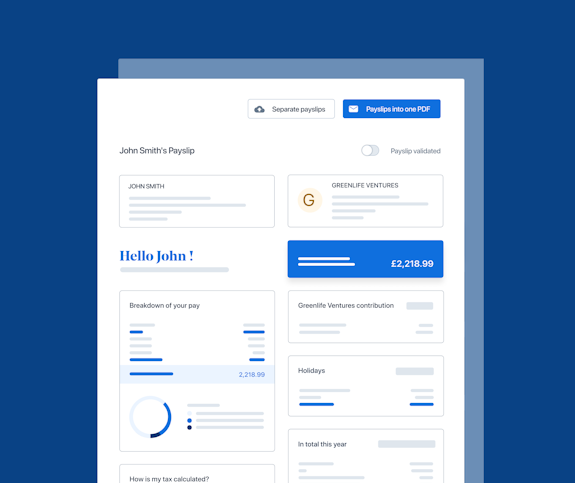- Blog
- |Managing Payroll
- >Payroll legislation
- >UK National Insurance changes January 2024
UK National Insurance Changes for January 2024 - A Quick Memo for Businesses


In January 2024, UK National Insurance rates will change.
At last year’s autumn statement, Chancellor Jeremy Hunt announced this significant change to National Insurance contributions, which will impact both employees and those who are self-employed too.
What’s happening to National Insurance in 2024?
From the 6th January 2024, the main Employee National Insurance (NI) rate was cut by two percentage points. So, for an employee in the default NI category, Class 1 National Insurance Contributions (NICs) are being reduced from 12% to 10%.
When will employees see these changes?
Employees working for companies who’ve already updated their payroll systems over the busy festive period will benefit from the UK National Insurance changes.
As the main rate was reduced from the 6th January 2024, these employees will see this benefit reflected on their payslip by the year’s first payday. This is unusual given that most legislation changes here in the UK often come into force at the beginning of the tax year (which is the 6th April).
Ace it with PayFit!
We’ve already coded these rate cuts into our platform so our clients can experience a smooth transition this January.
What do the January UK National Insurance Changes mean for employees?
This change is set to benefit millions of employees, though will only apply to some NI categories and earnings between the £12,570 and £50,270 threshold, equating to a maximum gross saving of £754 a year. This means that after tax, employees will be on average £450 better off per year (based on an average earning of £35,400 annually).
What if I can’t update my payroll in time?
If your payroll software or payroll service provider hasn't been able to update this rate on time, don’t fret. You’ll have the option to reimburse any overpayment of NI over the next few months.
How should I communicate this change to my employees?
As recommended by CIPP, the best and simplest way to communicate this change to employees is through their January or February payslips. This isn’t just handy for employees; it’s also a good idea for your company, as this can help reduce the number of queries your People team need to field.
Other things to consider
In addition to the above, it’s a good idea to:
Check your payroll software is up to date - You can do this by carrying out some test runs to check that new changes are making it through to employee payslips.
Ensure you’re using HMRC’s latest release of its Basic PAYE Tools - that is if you are using these.
Don’t get caught out this end-of-tax year
Instead, stay on top of all rate changes and new laws and regulations coming into effect with self-updating payroll software.
PayFit is a cloud-based solution that makes running payroll a cinch. Our platform is programmed to automatically apply all new rate and threshold adjustments each tax year, so you no longer have to tinker about with rate changes.
Tired of dealing with payroll providers that let silly payroll mistakes slip through the net? Compliance is our number one priority here at PayFit, as well as abiding by strict security standards. Payroll has never been more accurate, secure and easy to run. You can learn more during one of our detailed and dedicated product walk-throughs, which you can book in with a few clicks below.


A UK 4-Day Working Week - Thoughts On Labour’s Plan

Running payroll - A Guide For New Businesses

The Alabaster Ruling & Maternity Pay - A Guide For Employers

The End Of Zero Hours Contracts? Implications For Businesses

What is the HM Revenue and Customs Starter Checklist

